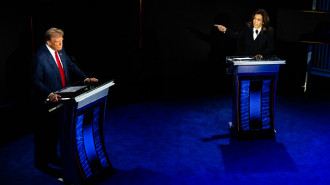Lebanon army scraps meat from meals as prices skyrocket
The Lebanese army has scrapped meat from all meals it offers to soldiers on duty as food prices skyrocket because of a deepening economic crisis, state media said Tuesday.
Lebanon is in the throes of its worst economic downturn since the 1975-1990 civil war, with poverty surging to now afflict around half of the population.
Although its currency is officially pegged at 1,507 pounds to the dollar, a shortage of hard currency has seen its black market value plummet to more than 8,000 to the greenback.
As a result, food prices have shot up by at least 72 percent since the autumn, the non-governmental Consumer Protection Association says.
Prices are expected to climb further as the currency continues to dive.
Lebanon's army has "completely scrapped meat from meals offered to soldiers while they are on duty," the National News Agency said, citing the economic crisis.
Read also: Lebanon army arrests dozens after protests amid economic crisis
On Tuesday, a kilogramme of lamb was selling for around 80,000 Lebanese pounds ($53 at the official rate), up from 30,000 pounds ($20 at the official rate) two months ago.
The price of a kilogramme of beef has shot up from 18,000 pounds ($12) to more than 50,000 ($33).
Lebanon relies on imports for most of its food, but a scarcity of dollars and a plummeting local currency have made such imports both costly and difficult.
Lebanon, which has a sovereign debt equivalent to 170 percent of its GDP, defaulted on its debt in March for the first time in its history.
The economic crunch has sparked months of unprecedented protests against official corruption and the banking sector.
The Lebanese army has been accused of violence against the protesters.
The union of butchers and cattle farmers said Tuesday that more than 60 per cent of butcher shops had closed in recent weeks.
It blamed the collapse of the pound and a decision by commercial banks to halt dollar withdrawals and transfers.
After a meeting on Tuesday, the union addressed authorities, saying: "either you release our trapped dollar savings from banks or you support the livestock sector... otherwise we will have no choice but to completely close down."
Follow us on Facebook, Twitter and Instagram to stay connected

![Palestinians mourned the victims of an Israeli strike on Deir al-Balah [Getty]](/sites/default/files/styles/image_684x385/public/2024-11/GettyImages-2182362043.jpg?h=199d8c1f&itok=xSHZFbmc)


![The law could be enforced against teachers without prior notice [Getty]](/sites/default/files/styles/image_684x385/public/2178740715.jpeg?h=a5f2f23a&itok=hnqrCS4x)
 Follow the Middle East's top stories in English at The New Arab on Google News
Follow the Middle East's top stories in English at The New Arab on Google News

![Voters in Michigan [Getty]](/sites/default/files/styles/image_330x185/public/2182490468.jpeg?h=a5f2f23a&itok=XMi_sWGX)
